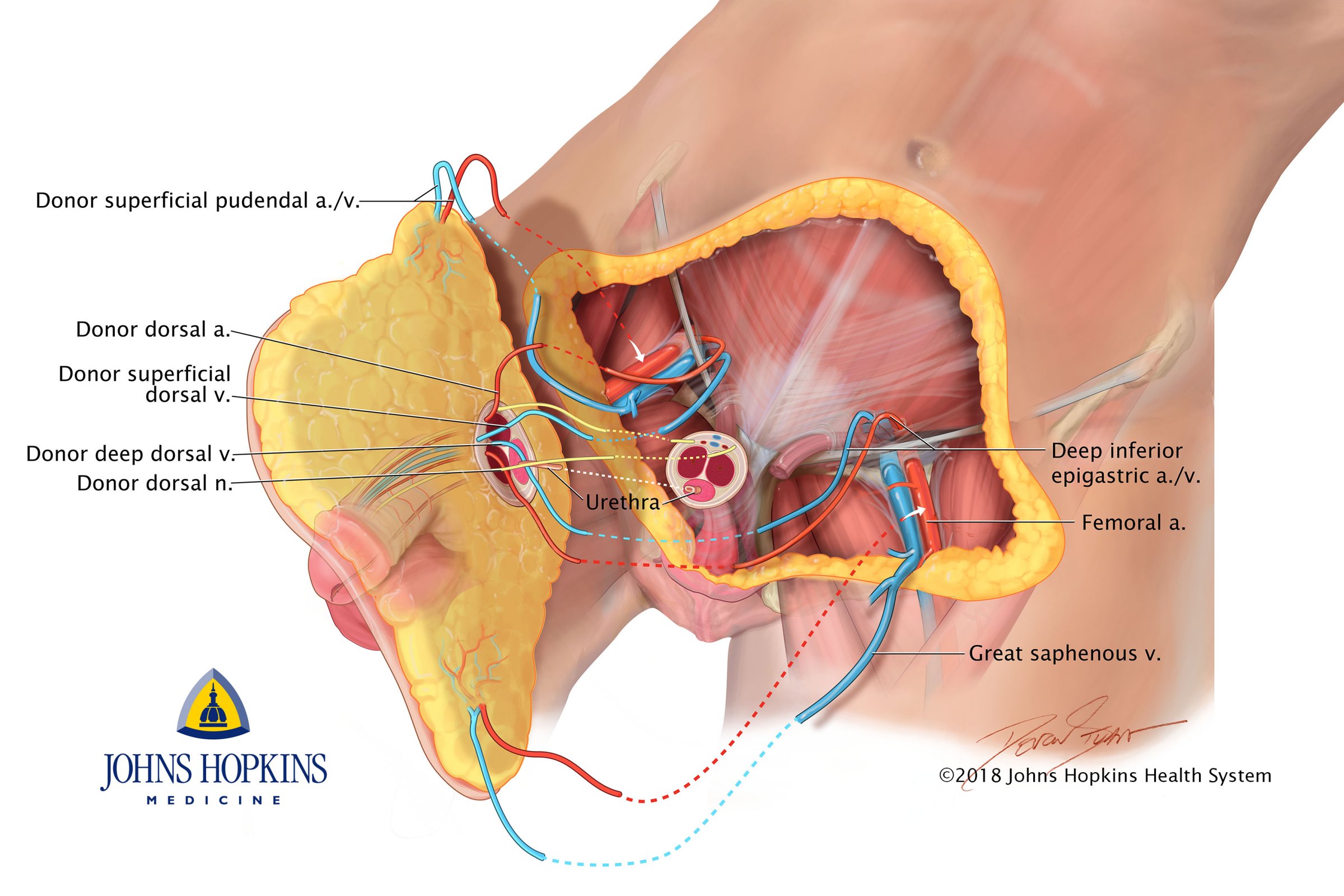Surgeons at Johns Hopkins University have given a wounded soldier the world’s first full penis and scrotum transplant, the hospital announced Monday.
The soldier, who remains anonymous, lost his genitals to an improvised explosive device in Afghanistan. In a 14-hour surgery last month, a team of 11 surgeons was able to transplant the full penis, scrotum, and partial abdominal wall from a deceased organ donor onto the soldier’s body.
They attached the urethra, arteries, blood vessels, muscles, nerves, and more to the patient.
“It’s a real mind-boggling injury to suffer, it is not an easy one to accept,” the soldier said in a statement. “When I first woke up, I felt finally more normal… [with] a level of confidence as well. Confidence… like finally I’m okay now.”
 (John Hopkins Medicine)
(John Hopkins Medicine)
While several penis transplants have been conducted around the worldover the past few years, this is the most extensive transplant ever done, because of the degree to which the explosive blast damaged tissue in the soldier’s groin and pelvic region.
“We are hopeful that this transplant will help restore near-normal urinary and sexual functions for this young man,” W.P. Andrew Lee, the head of plastic and reconstructive surgery at the Johns Hopkins University School of Medicine, said in a statement.
It’s possible to reconstruct a penis using tissue from the body instead of doing a transplant, but patients in such cases need an implant to get an erection, which comes with a higher risk of infection.
In a video, Hopkins Medicine shows exactly how this transplant worked.
This type of transplant, in which a body part or tissue is transferred from one individual to another, is called vascularized composite allotransplantation.
The organ donor’s testicles were not part of the transplant, which means the patient will continue to need testosterone injections as he recovers. For now, four weeks after the surgery, the patient is reportedly doing well.
The scientists behind the work have been preparing for this type of transplant for approximately five years, and they may be able to use the same technique on other injured veterans in the future.
According to one study, 1,367 male servicemembers sustained injuries to the genitals between October 2001 and August 2013, with 31% of those injuries affecting the penis.
Now it appears there may be a new and better treatment even for severe cases, as long as surgeons are able to find a donor.
This article was originally published by Business Insider.
More from Business Insider:



